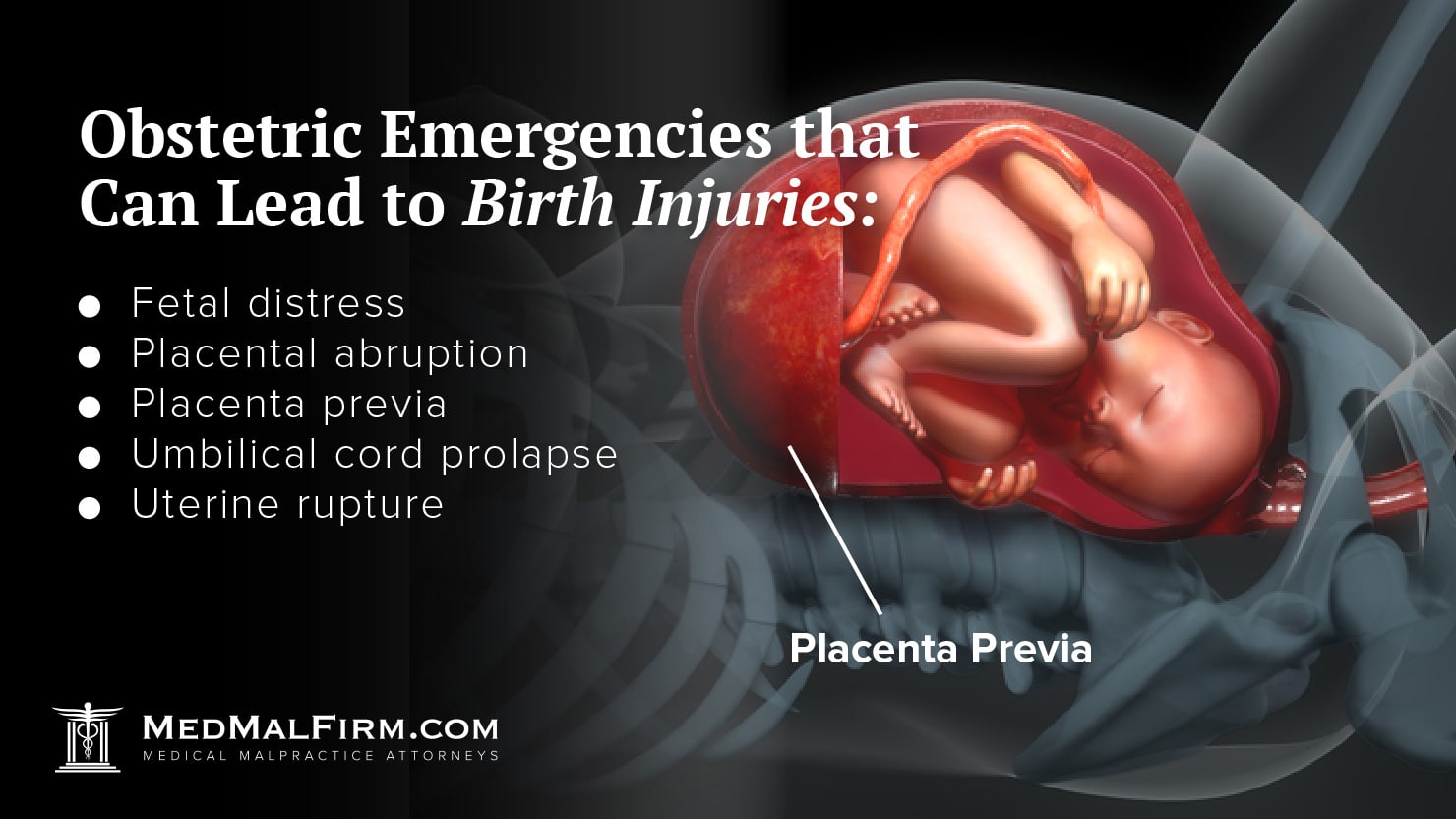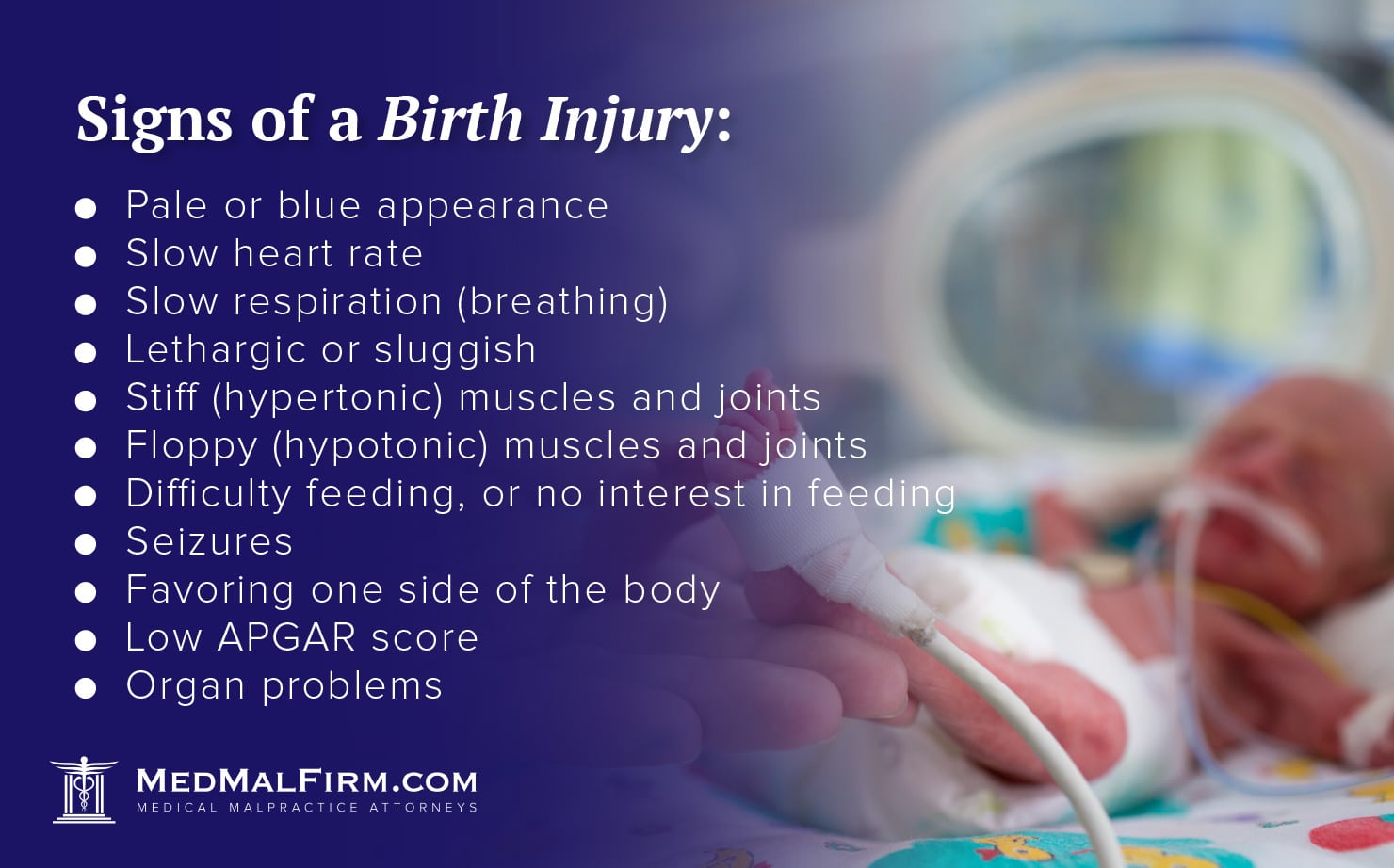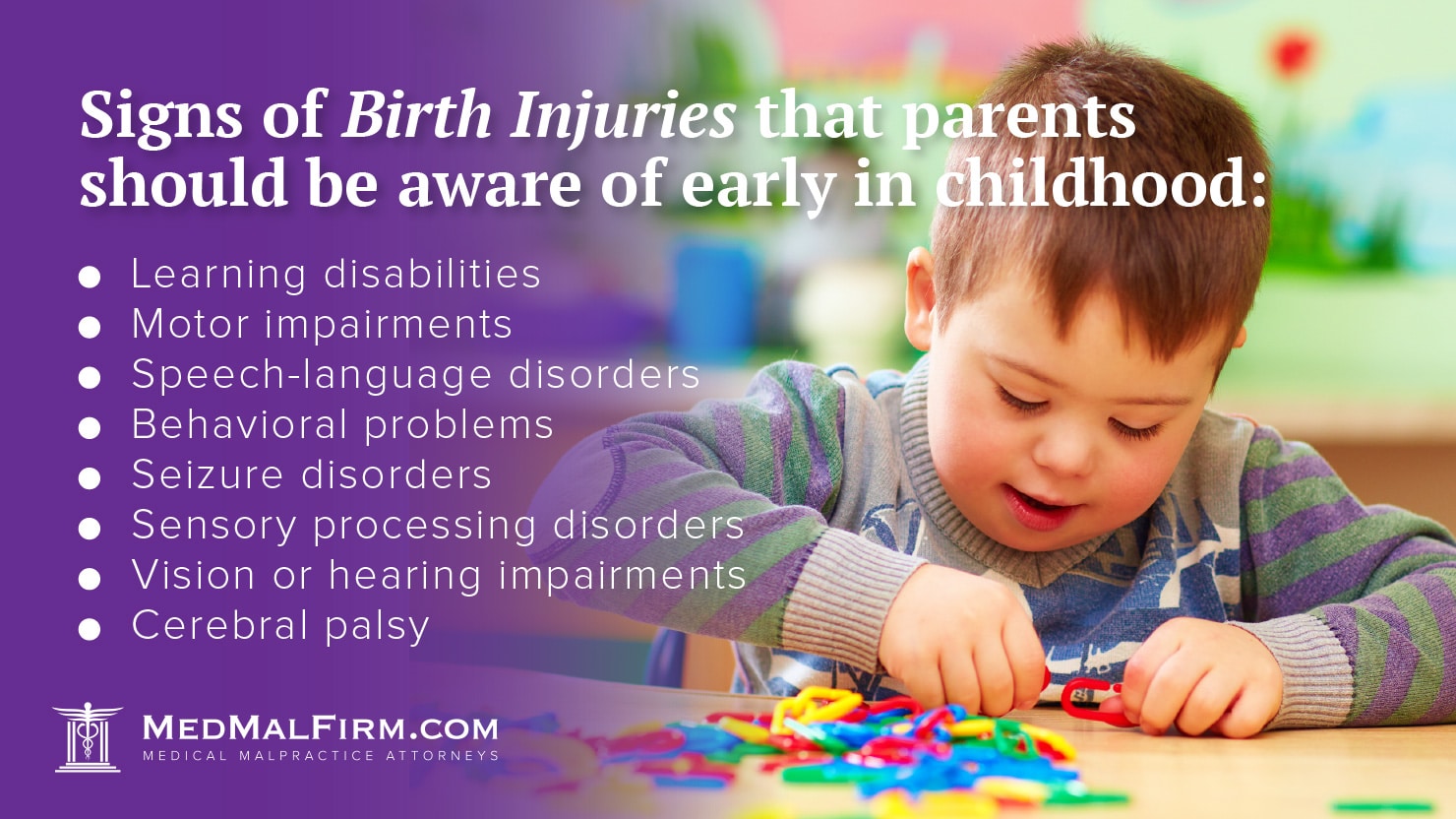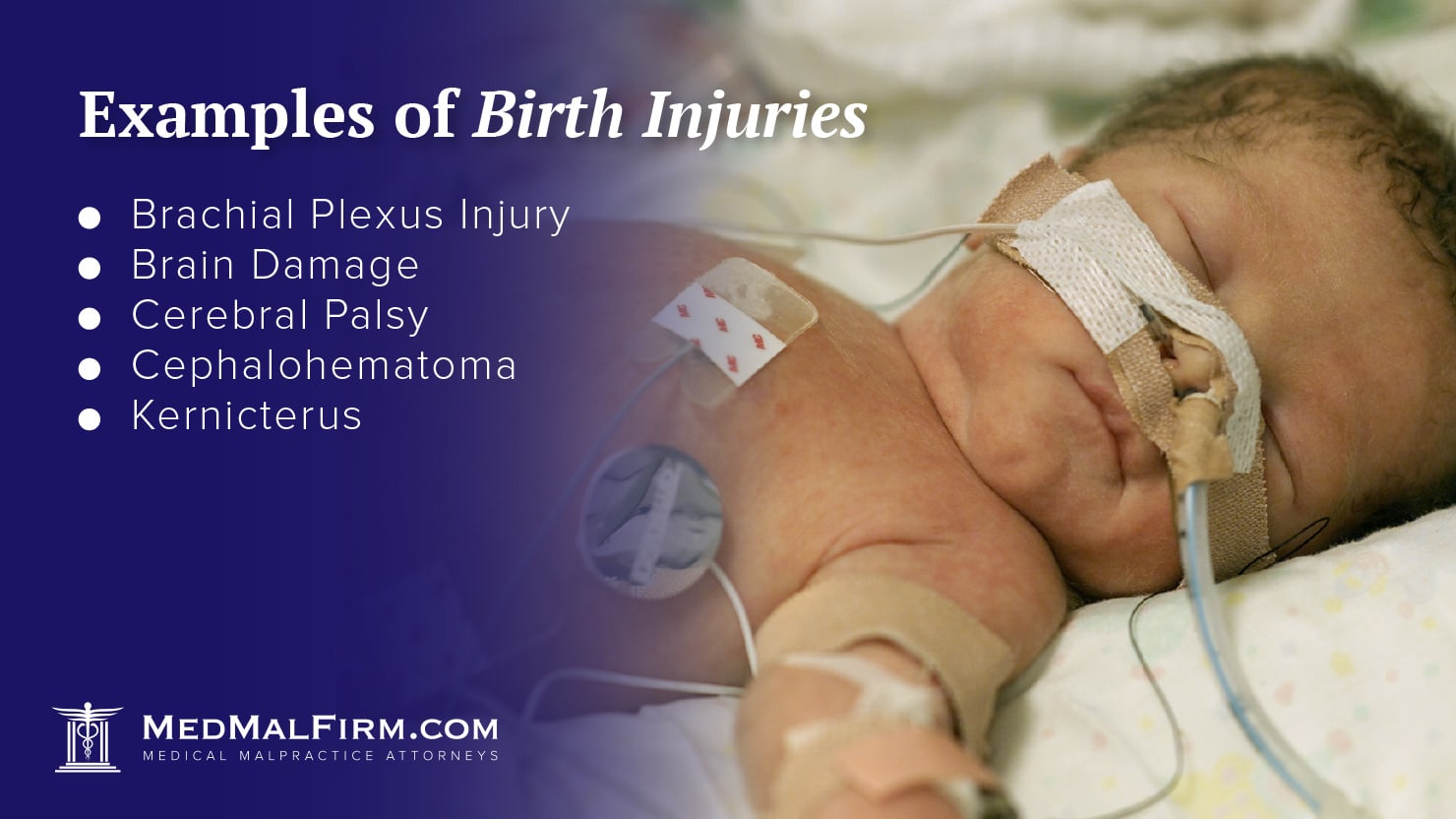Birth Injuries
A birth injury is any injury that causes harm to a baby during labor and delivery, or shortly thereafter. Some birth injuries are minor and have little or no lasting impact on the child. Sadly, others can be catastrophic and have lifelong or even fatal consequences. A sad reality is that many birth injuries are caused by negligence on the part of a healthcare provider or hospital. Doctors may fail to uphold the medical standards of care and cause harm to the mother or baby. Nurses may not adequately monitor vital signs and report signs of fetal or maternal distress. Any of these situations may constitute negligence, and may be medical malpractice.
If your child has suffered a birth injury you may be asking yourself and others many difficult questions. What exactly is a birth injury? How did this happen? Why did this happen? How will this affect my child? Was this preventable? Who is at fault for birth injuries?
These are all reasonable and understandable questions. When a medical professional fails to act with a reasonable standard of care, skill, or judgment, they may be considered negligent and can be held responsible for injury to your child. Birth injuries are traumatic medical malpractice events for any family to experience, especially when the injury could have been prevented.
What are Birth Injuries?
A birth injury is harm to a child that, in most cases, is completely preventable. Some of the situations that can lead to a birth injury include:
- Improper use of birth-assisting tools, such as forceps or a vacuum extraction tool
- Pulling and/or twisting the infant improperly during labor and delivery
- Administering the wrong amount or wrong type of medication to the mother during pregnancy and/or during labor and delivery
- Failure to properly monitor the infant for fetal distress, including failure to regularly monitor fetal heartbeat
- Failure to schedule and perform an emergency cesarean surgery (C-section)
- Acceleration and stimulation of the birth
- Birth defects caused by pharmaceutical drug use during pregnancy
When an emergency situations arise during labor and delivery, healthcare providers have a duty to respond accordingly. That means providing prompt and adequate interventions in order to preserve the health of the mother and baby.
Obstetric Emergencies that Can Lead to Birth Injuries
Labor and delivery can quickly go from “normal” to “emergent”. There are a variety of possible complications and outcomes that can have a profound impact on how delivery is managed. Healthcare providers must be diligent in monitoring for obstetric emergencies that could put the life of the mother and baby at risk. Some examples of obstetric emergencies that can lead to birth injuries if they are improperly managed include:

When these serious emergencies arise, it is imperative that healthcare providers provide timely and appropriate care to the mother and child. Birth injuries resulting from emergent situations may be due to delay in intervention, or improper handling of the situation.
Signs of a Birth Injury
If your baby has suffered a birth injury, there may be some immediate signs that something is wrong. Babies who have birth injuries may have the following:

These are examples of the signs of a birth injury your child may experience immediately after birth. There are also signs of a birth injury that may not be apparent until early in childhood. For many families, the first sign that a child may have a birth injury is missed developmental milestones. Other signs of birth injuries that parents should be aware of early in childhood include:

These disabilities, impairments and disorders are often the first signs that a birth injury has occurred. When parents recognize these signs, it is important to talk to your child’s doctor about the possibility of birth injuries being the cause. Not every child who has one or more of these disorders has suffered birth injuries, but it is a possibility that parents should be aware of.
Examples of Birth Injuries
There are many possible birth injuries that can occur during labor and delivery. Some of the more common types of birth injuries include:

Brachial Plexus Injury
The brachial plexus is a network of nerves that control movement of the shoulder, arm and hand. During labor and delivery, the brachial plexus nerves can be damaged if the baby gets stuck in the birth canal, is too large to fit through the birth canal (fetal macrosomia) or if the doctor uses too much force attempting to assist vaginal delivery. Severe brachial plexus injuries can lead to loss of mobility and sensation.
Brain Damage
Infants can suffer brain damage before, during, or just after birth. The most common types of brain damage that result in birth injuries are:
- Hypoxic Ischemic Encephalopathy (HIE)
- Periventricular Leukomalacia (PVL)
- Intracranial Hemorrhage
- Abnormal Brain Development
Cerebral Palsy
Cerebral palsy is a motor disorder that affects thousands of babies each year. Brain damage, oxygen deprivation and HIE can all lead to cerebral palsy. When a child has a type of cerebral palsy, they may experience difficulty with mobility, coordination, balance, motor skills, speech, hearing and vision.
Cephalohematoma
Cephalohematoma is a birth injury that occurs when there is bleeding between the baby’s skull and the membrane that covers it (periosteum). Babies may experience cephalohematoma if labor and delivery are lengthy or difficult, or if forceps or vacuum extraction is used. Compression or trauma to the baby’s head can cause blood vessels to rupture, leading to cephalohematoma.
Kernicterus
Kernicterus is a type of brain damage that occurs when jaundice is untreated or improperly treated. When bilirubin levels become too high, bilirubin can enter brain tissue, causing kernicterus, or bilirubin encephalopathy. When bilirubin enters brain tissue, it causes damage, which can lead to conditions like cerebral palsy, hearing loss, vision loss and intellectual disabilities. It is important that parents never underestimate jaundice.
What Steps to Take After You Discover a Birth Injury
If you suspect that your child has suffered a birth injury due to a medical provider’s negligence or carelessness, it is important that you take steps to protect your legal rights. Begin with gathering information and documenting the birth injury and related circumstances as best as you can, including:
- Making a list of the contact information for your treating physicians and other medical professionals, including your OB/GYN
- Making a list of the hospitals and medical facilities where you were treated or delivered your child
- Write down the medical procedures that were performed or offered to you, including ultrasounds, measuring of fundal height, etc.
- Create a timeline of all of the events that took place with as many details as you can
- List any prescription medications that you were taking during your pregnancy
- Write down any concerns that you may have had during pregnancy and labor & delivery
Once you have documented everything that you can, your next step is to contact an attorney who specializes in cases like yours. Because birth injuries fall under an extremely complex area of law known as medical malpractice, it is important that you select an attorney with experience and a proven track record winning medical malpractice cases.
We Are Committed to Our Clients
MedMalFirm.com is a dedicated medical malpractice resource helping victims and their families who have sustained injuries or death in cases involving a birth injury. If you believe that your child suffered a birth injury because a doctor, medical professional, or hospital did not perform their duties properly, we urge you to contact our office right away. We will begin with a free case consultation where we can discuss the important factors in your potential case and help you understand your rights.
Our medical malpractice lawyer in Houston is ready to help you protect your rights. Call us at 877-887-4850 to get started.
